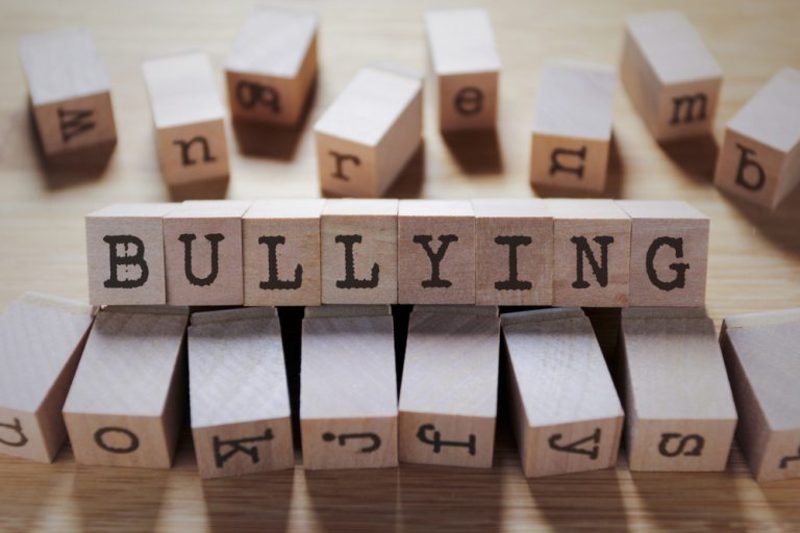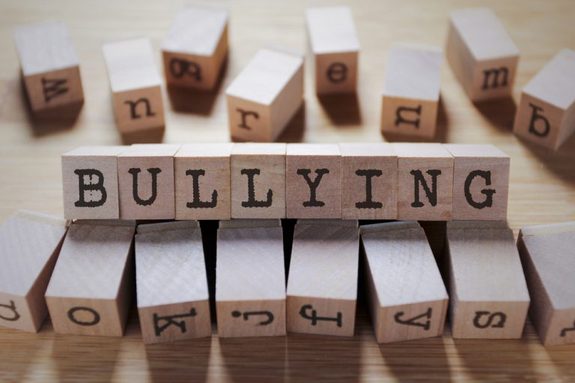 Dec 17, 2016 Posted at 9:12 AM
Dec 17, 2016 Posted at 9:12 AM
BULLYING: IT ALL COMES DOWN TO CULTURE
BULLYING: IT ALL COMES DOWN TO CULTURE
December 16, 2016 By Lizzie Sider

In my elementary school years, I was badly teased, excluded and ridiculed. Almost every day I would come home from school crying, feeling defeated, crushed and not wanting to return.
Only the constant support and encouragement of my mom and dad got me through it all. The strength that I ultimately gained through the process of overcoming the bullying inspired me to create my own bullying prevention presentation, which combines music and messages of bullying prevention, positivity and encouragement.
So far, I have performed my assembly at over 350 schools and 150,000 children nationwide. My newest project, a free Bully Prevention Video Package, is currently being used in over 2,700 schools, representing more than 1.6 million children.
School Culture
According to Dr. Kent D. Peterson of the University of Wisconsin-Madison, school culture is “the set of norms, values and beliefs, rituals and ceremonies, symbols and stories that make up the ‘persona’ of the school.” During my school years, there were some personas that put me in a great mood all day, and some that left me appalled.
A toxic school culture is detrimental and leads to an intolerance and unhappiness among all students and administrators. A healthy school culture is what turns a mediocre school into a great school, and a great school into an EXCEPTIONAL school. Here are some characteristics of EXCEPTIONAL SCHOOLS that I have observed and that parents should insist upon.
Top Four Characteristics of Exceptional School Cultures
- Positive/uplifting leadership—Encourage your school’s principal to be invigorated, inspired and invested in the spirit and demeanor of everyone in it. Culture trickles down from the top.
- Mutual respect—Establish mutual respect. This is the key to opening critical doors to conversation and understanding about difficult topics, such as discipline, etc. among parents, teachers and students.
- Display students’ artwork—Get those bare walls decorated with students’ colorful artwork. Seeing their own creations displayed inspires students to be more imaginative and more invested in their school community.
- Strong and positive rapport between staff and parents—Develop good relationships between your school’s faculty and administration and families. A seamless transition between a student’s home and school life happens best if parents and administrators communicate well and stress similar values in each place.
More of What I’ve Learned About Culture
- Disciplining works. Condescending tones DO NOT. In my experience, when an adult speaks to a child in a loud volume and/or with a condescending tone, the child either doesn’t listen and puts up a wall, or becomes timid and retreats inside their shell.
- Become a safe space for them. When children retreat inside their shell, it is more difficult to help them because they won’t necessarily open up to you the way you need them to. Let them know that they always have a safe space in you. Then, back that up by actively and genuinely listening.
- Focus on the DO’s, not the DON’T’s, and be their example. I attribute the success of my assembly to two things. One, my age, and therefore my ease of connecting with students. Two, my emphasis on the DO’s instead of the DON’T’s. My experiences show me that children want to make the best and healthiest choices, but they can’t always do that unless they see it being practiced all around them. Tell them, but more importantly, show them, what to do through your own behavior.
The Bottom Line
The bottom line is: kids will be kids, but they all want to be better. It is our responsibility, as leaders, to help them become the best of themselves. A thoroughly positive school culture will do that, not only for the students, but for the entire school community.
It’s so easy to say we’re going to do something, but it takes something completely different, a true investment of time and talent, to actually do it. Many of the schools I’ve visited hit the nail on the head already, establishing good, safe school cultures, but the majority have not. Help make YOUR school truly exceptional. With more and more examples of excellence, we can make safe, welcoming schools the rule.
Go To article on NationalPTA OneVoice: http://onevoice.pta.org/?p=7409
Lizzie Sider is an 18-year-old singer/songwriter, recording artist and Founder of the bullying prevention foundation, Nobody Has The Power To Ruin Your Day.
